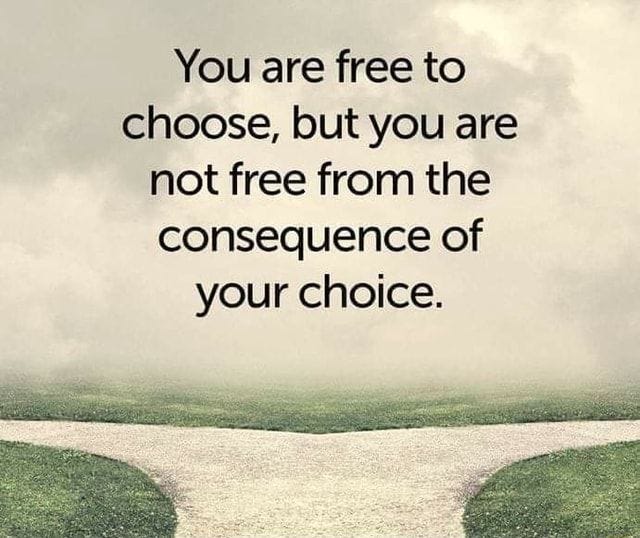“Why Do Bad Things Happen to Good People?”
This question is sometimes stated as, “If God is a ‘loving’ God, why does He punish people?”
Let’s start with the first iteration. We often hear people lament about someone who has suffered or died, recalling, "They were too good to be taken” or “They were too good to have suffered.”
Granted, many may be ‘taken’ sooner than others, and some, in horrific ways or circumstances. But except for our loss or the tragic loss of children, how do we know who was ‘good’? What determines ‘goodness’? Who determines goodness? And what exactly is ‘goodness’?
People around the world die every day. How many do we know? How many did we know well enough to know what went on behind their closed doors? But you get my point. Human nature is often about ‘self.’ Our actions are, most often, “what’s in it for me.” Why? Decisions and choices for most of us are focused on the self. “How can I get the things of this world that I desire? Despite the damage I may cause or people I may hurt.” This is a fairly common attitude.
This world and its ways teach and encourage us to embrace what it offers. In many cases, we do whatever we can, whatever we might, or whatever we think we need to or can to succeed in acquiring the possessions we crave or desire.
What does the world encourage? The exact opposite of goodness. The polar opposite of respectful. The antithesis of appropriate. How to avoid personal responsibility. So the next time you hear the comment, ‘they were too good’ to have endured that hardship or to have died, remember, we actually know the smallest measure of their life, their choices, or the motivations for their behaviors.
As to the other castigation of God’s involvement in our ‘punishment,’ to start with, God is not a punisher.
Convincing people God is vengeful or is a revenge-seeking punisher are great talking points for people groups or religions to spew to weaponize God, but why? Why would religions want us to believe God is a punisher?
Throughout history, far too many people in positions of religious, political, or economic power have promulgated this thought about who God is and why He wants to punish us. Why would they want to promote this idea so strenuously?
Fundamentally, it’s about greed, power, and control over others’ or control over others’ beliefs or actions. What better way to control others’ choices and behaviors than to suppress their core understanding of God by concealing the truth with fabrications, misinformation, and disinformation? Then, back their words up with God loves to punish!
If we can be convinced God is mean or nasty, always desiring to punish us, we certainly do not want to run into his arms. Yet, we certainly do want to turn away from Him. Some in religious or political organizations want us to think that we as evil doers or ‘law breakers’ and ‘unbelievers’ deserve to be punished.
Therefore, as evil doers, we need an advocate or mediator to repent and tell our story for us in hopes that our punishment won’t be too harsh. Where can we find this mediator? At church, synagogue, mosque, or through some other purpose-driven group leader.
The pharisaic Christian, the Hassidic rabbi, the jihadist Imam, or the authoritarian fascist. All of them are prepared to condemn those who choose truth instead of genuflecting over the self-promoted exaltation of those clinging greedily to power and control over other people’s choices and behaviors.
The fact is, God allows each of us ‘free will’ to choose which events, people, circumstances, and relationships (yes, even a relationship with God Himself) we will engage in, believe in, or cultivate. The truth is that most often, our ‘negative outcomes’ in life are direct consequences of our own choices and decisions.
If we are “punished” or suffer, it’s most often due to our own inappropriate choices and turning our backs on God’s protective blessings by instead embracing the world’s ways. This inevitably produces experiences aligned with what the world has for us: Denial, Deception, and Doubt.
We’re conditioned from childhood to believe what the world has told us, sold us, or convinced us about what we should or shouldn’t hold as true. What we can or cannot believe. What we can or cannot live without. What exactly we deserve or don’t, no matter the harm it may cause to those we claim to care for and love.




